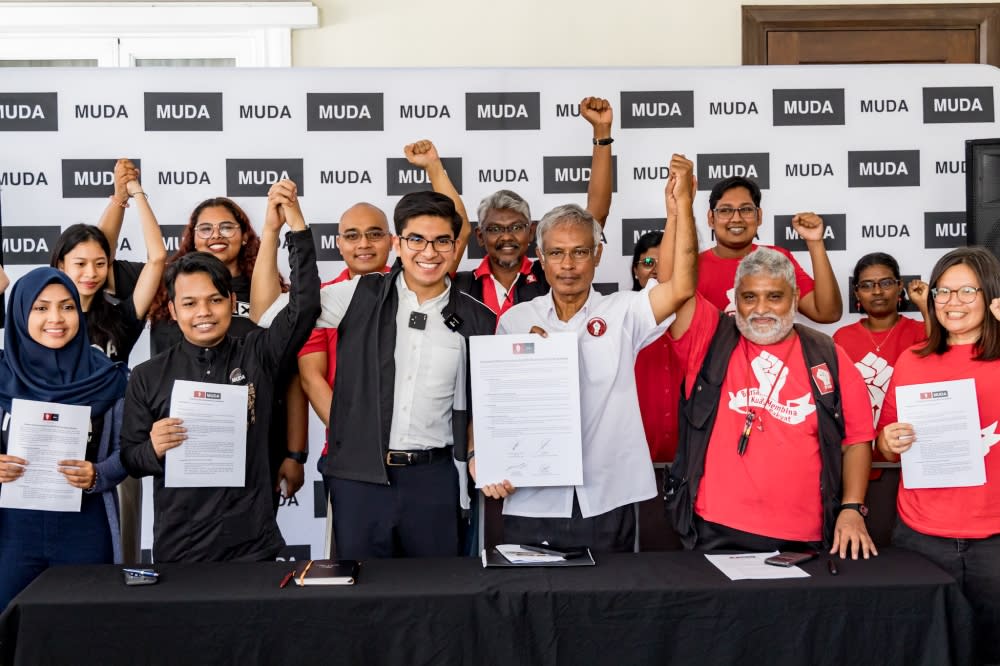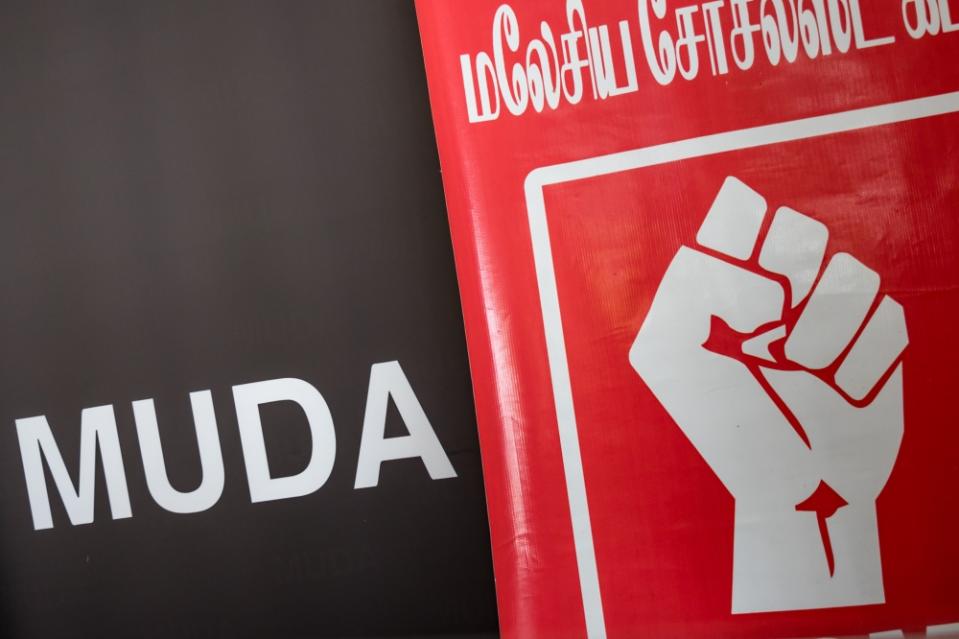Pundits say Muda-PSM tie-up for state polls a progressive move, but not likely a vote spoiler

KUALA LUMPUR, July 19 — The partnership between the youthful Malaysian United Democratic Alliance (Muda) and the more established Socialist Party of Malaysia (PSM) as a “third force” in next month’s six state elections shows progress in the country’s political growth.
Political scientist James Chin told Malay Mail that unlike the mainstream parties, PSM and Muda are not seen to be driven by racial or religious politics.
“Mainstream parties are very good at playing that game,” he said, referring to Pakatan Harapan (PH) and Perikatan Nasional (PN) respectively.
The two coalitions, together with Barisan Nasional (BN) which is now in partnership with PH and tout themselves the “unity government” as they share joint control of the federal government — together with the ruling Gabungan Parti Sarawak and Gabungan Rakyat Sabah — make up the main names in Malaysian politics.
Because of that, Chin who is a professor of Asian studies at the University of Tasmania, indicated that the PSM-Muda alliance is unlikely to gain traction with the public in the August 12 vote.
Instead, he said the two parties that were once seen as PH allies could affect the coalition to a certain degree in some seats even if it won’t be fatal.
“So they are not a threat, but the problem is that in marginal seats, they can make a difference and they can do damage to PH rather than PN.”
He added that PH-BN should deal with PSM-Muda sooner rather than later as it would be foolish to allow this “third force” to split votes for the unity government.
“If you look at what’s happening in PN, it is very clear that they are collecting everybody that is against Datuk Seri Anwar Ibrahim and Datuk Seri Ahmad Zahid Hamidi.
“So, the logical thing to do for PH is to collect everybody who is against PN, Tan Sri Abdul Hadi Awang, PAS and Parti Pribumi Bersatu Malaysia,” Chin said.
PAS, Bersatu, and Gerakan together form the component parties in PN.
Syaza Shukri, assistant professor of political science at the International Islamic University Malaysia, said the PSM-Muda collaboration is a strategic one that could see both parties benefiting from each other’s strengths.
She said that in Malaysia, it is common to see parties who champion different issues working together as finding minimal overlaps is good enough for the elections.
However, like Chin, Syaza thinks that PSM-Muda is still unlikely to be a threat as they would need to work the ground more to gain stronger support.

Logos of Muda and PSM are seen during a press conference at Bilik Gerakan Muda in Petaling Jaya, July 15, 2023. Analysts believe the PSM-Muda alliance is unlikely to gain traction with the public in the August 12 vote. — Picture by Firdaus Latif
“I don’t think the whole of the country will support them. I see them getting support in more urban areas.
“But it’s OK to be this kind of regional party for the short term,” she told Malay Mail.
Political scientist Wong Chin Huat also said it is unlikely that PSM-Muda will be able to split votes for PH in next month’s state elections.
He cited the 2018 general election results for Sungai Siput to back his assertion.
“From the Sungai Siput contest in GE14, where the PSM incumbent lost even his deposit when he contested against PH, BN and PAS, notwithstanding he was a good MP in both Parliament and his constituency, we know that PH voters are highly strategic.
“The moment they identify a party as a spoiler, they would shun that party even if they have good candidates,” he said.
But Wong, who is a political scientist with both the Jeffrey Sachs Centre on Sustainable Development and Sustainable Development Solutions Network that is hosted by Sunway University, also said that Muda could be a threat to the Umno-PH coalition if it plays its cards right.
He said both Umno and PH supporters might find it easier to vote for Muda to express their dissatisfaction with the unity government if they cannot stomach voting for PN.
“If they can excite the apathetic or even cynical non-voters or steal Malay votes from PN or BN more than what PH or BN candidates are able to, the PH base would shift over,” he said.
At the same time, Wong said the PSM-Muda alliance must be careful to avoid the “spoiler” label when it comes to PH voters.
“While ‘third force’ sounds sexy to some civil society activists, it often just means ‘spoiler’ to the PH base,” he told Malay Mail.
Wong said another issue for PSM and Muda is the first-past-the-post election system adopted in Malaysia, which he said will always lead to stunted development after a decade or two unless the two parties are able to join a bigger coalition.
Muda and PSM declared their electoral partnership on July 15, saying they shared a common political agenda and direction and wanted to focus on public-oriented issues as well as the environment.
Muda president Syed Saddiq Abdul Rahman and PSM chairman Dr Michael Jeyakumar Devaraj said that the two parties have agreed not to clash over seats, and will reject racial politics.
Polling day for Selangor, Penang, Negeri Sembilan, Kedah, Kelantan, and Terengganu state elections falls on August 12.



